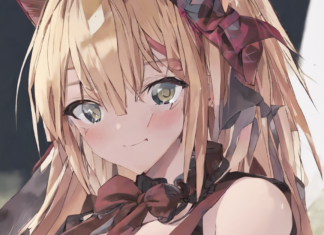The Varshney caste, also known as Vaishya, is one of the most influential and prominent communities in India. The history of the Varshney caste dates back centuries and is filled with richness, tradition, and significance. In this article, we will delve deep into the origins, traditions, occupations, and social status of the Varshney caste and explore how they have evolved over time.
Origins of the Varshney Caste
Historically, the Varshneys are believed to belong to the Vaishya varna, which is one of the four main social classes in Hindu society, according to ancient texts. The term Vaishya itself means “trader” or “businessman”, highlighting the traditional occupation of this community. The Varshney caste is said to have descended from Maharaja Agrasen, a legendary king and a symbol of non-violence, who is revered as the progenitor of the Vaishya community.
Influence and Significance
The Varshney community has played a significant role in shaping the social, economic, and cultural landscape of India. They are known for their entrepreneurial skills, business acumen, and strong work ethic. Many Varshneys have excelled in various fields such as business, commerce, politics, and education, making them an influential and respected community in Indian society.
Traditional Occupations
Traditionally, the Varshneys were involved in trade, commerce, and business activities. They were merchants, traders, and moneylenders who played a vital role in the economy of ancient India. Over time, many Varshneys have diversified into other professions such as law, engineering, medicine, politics, and education, showcasing their adaptability and versatility.
Social Status and Evolution
The Varshney caste has undergone significant changes and evolution over the centuries. While they were traditionally associated with business and trade, many Varshneys have now branched out into diverse fields and professions. The community has also made strides in education, with many Varshney individuals achieving success in academics and research.
Cultural Practices and Traditions
The Varshney community has a rich tapestry of cultural practices and traditions that are rooted in Hindu customs and beliefs. They celebrate festivals such as Diwali, Holi, and Karva Chauth with great fervor and enthusiasm. Family values, respect for elders, and a strong sense of community are deeply ingrained in the ethos of the Varshney caste.
Challenges and Opportunities
Like any other community, the Varshney caste faces its own set of challenges and opportunities in the modern era. While many Varshneys have achieved success and prosperity, issues such as discrimination, inequality, and stereotyping continue to persist. However, the community is also presented with opportunities to further excel in various fields and contribute to the development and progress of society.
Future Prospects
As we look towards the future, the Varshney caste is poised to continue its legacy of excellence and achievement. With a new generation of young Varshney individuals entering diverse professions and fields, the community is well-positioned to make an even greater impact on society. By upholding their traditions, values, and work ethic, the Varshneys are set to carve a path of success and prosperity in the years to come.
Frequently Asked Questions (FAQs)
1. What is the significance of the Varshney surname?
The Varshney surname is derived from the term “Varsh”, which means “rain” or “abundance” in Sanskrit. It symbolizes prosperity, fertility, and growth, reflecting the traditional occupation of the community as traders and businessmen.
2. Are all Varshneys involved in business-related activities?
While the Varshney caste traditionally had ties to business and trade, many individuals have diversified into other professions such as law, medicine, engineering, and politics. Today, Varshneys are found in various fields and industries.
3. What are some famous individuals from the Varshney community?
Several notable personalities from the Varshney caste have made significant contributions in their respective fields. Some examples include Late Shri Pranab Mukherjee (former President of India), Rakesh Jhunjhunwala (renowned investor), and Dr. Rakesh K. Jain (eminent oncologist).
4. How is the Varshney community perceived in Indian society today?
The Varshney community is generally respected and admired for their business acumen, entrepreneurial spirit, and contributions to society. They are seen as a progressive and enterprising community that has played a pivotal role in India’s economic development.
5. What are some common rituals and customs observed by the Varshney community?
Varshneys follow traditional Hindu customs and rituals such as pujas, havans, and festivals. They place a strong emphasis on family values, respect for elders, and community welfare. Rituals related to marriages, births, and festivals are observed with great enthusiasm and devotion.
In conclusion, the Varshney caste has a rich and storied history that continues to thrive in the modern era. With a legacy of entrepreneurship, cultural heritage, and social contributions, the Varshneys stand as a testament to the resilience and spirit of the Indian community. Through their perseverance, adaptability, and commitment to excellence, the Varshneys are poised to shape a brighter future for generations to come.








